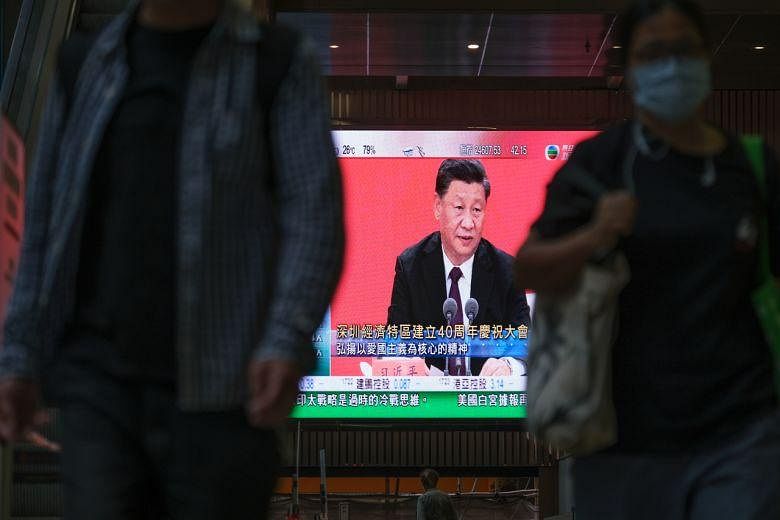SHENZHEN -China will press on with its global high-tech ambitions as President Xi Jinping tasks its most innovative city, Shenzhen, to drive the campaign in the next phase of its development.
The mission has gained urgency amid a worldwide economic slump and threats of decoupling from the United States and other countries, a challenge that the Chinese leader acknowledged.
In a 50-minute speech on Wednesday (Oct 14) to mark the 40th anniversary of Shenzhen's establishment as a Special Economic Zone that helped propel its exponential growth, President Xi said China was at a key stage of transforming its economy during a challenging time.
"The world today is undergoing major changes unseen in a century...The economic, technological, cultural, security, and political structures are all undergoing profound adjustments, and the world has entered a period of turbulent change," he told more than 100 diplomats, government officials and business leaders.
Tech capital Shenzhen's job is to continue to reform and open up, lead the way in innovation and drive the Guangdong-Hong Kong-Macau Greater Bay Area, plan to turn the cluster into the country's economic powerhouse.
The blueprint calls for the integration of nine cities in Guangdong province including Shenzhen, Hong Kong and Macau to create a megalopolis with cross-border business opportunities.
"It is necessary to continue to encourage and guide Hong Kong, Macau, Taiwan compatriots and overseas Chinese to the investment opportunities," he said.
Mr Xi's speech comes just two weeks before a crucial political meeting in Beijing where the Chinese leadership will unveil the country's next five-year social and economic plan, and another economic development blueprint that will guide it through to 2035.
The Chinese leader has been on a tour of the southern province of Guangdong this week, urging businesses and workers to develop greater self-reliance and innovation.
Since May, President Xi and other officials have bandied about the term, "dual circulation", a new economic strategy that is less dependent on foreign markets and technology and more on domestic consumption.
Yesterday, the Chinese president alluded to this policy, saying it is not a "closed domestic circulation", but "an open domestic and international dual circulation".
That would require improvements to the domestic supply chain involving production, distribution and consumption, but also an open environment for foreign investment.
On Sunday, the government announced that it would give Shenzhen greater autonomy to carry out reforms in its finance sector, technology development and the hiring of foreign talent.
It also tasked Shenzhen to become a "model city that can represent a modernised and vibrant socialist country".
The southern metropolis - a fishing village four decades ago - has seen its GDP grow from 270 million yuan in 1980 to 2.7 trillion yuan in 2019, said President Xi, making it the fifth biggest economy among Asian cities.
Hailed as China's Silicon Valley, it is home to some of the country's biggest and most innovative companies: Tencent, Huawei, DJI, BYD and scores of tech startups.
It is also the first city in China to have full-scale 5G coverage.


